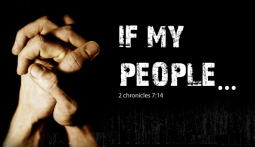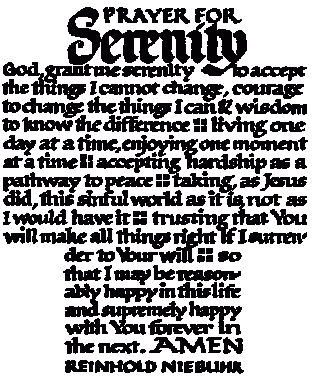The Scripture passages today deal quite a bit with the notion of “time.” WE read, for example:
- Past – “For this reason I came” (John 18:33)
- Present - “Father, the hour has come” (John 17:1)
- Present/Future – “They are in the world while I am coming to you” (John 17:11)
As we heard during the celebration of the Vigil of Easter:
- Jesus is the Alpha and Omega,
- The beginning and the end.
- All times and seasons obey his word.
I recently was speaking to a young lady in high school who was concerned about her future. She had applied to several colleges and universities and was waiting to hear from each of them. She had done the research, visited several of them, filled out and sent applications, written essays, and acquired recommendations. There was nothing that she could do not except wait. Her life would change depending on acceptances and/or rejections of the considered colleges/universities. Naturally she was a bit anxious I said, “In Scripture studies, we call that ‘living in the question.’” She paused for a minute, considered this idea and with a concerned look on her face and said, “Yeah, that’s exactly where I am.” After a moment she continued, “That’s a horrible place to be!”
She was right. She did nothing wrong. She was fine in feeling the way that she did. But “living in the question” is a very unpleasant place to find oneself.
During our life, we often find ourselves in situations where simultaneously:
- We are waiting for certain events to occur in the future,
- We have completed certain actions in the past in preparation for an event,
- We continue, in the present, to perform certain activities but can only do so much because we must wait to see what happens next.
Depending on the outcomes of events, we might have to change our plans and our activities. It’s also not uncommon in such situations to pray and discern and ask for Gods enlightenment to guide us in the midst of uncertainty.
What to do in the meantime?
Jesus came during a rather backward time. He came to a strange land. Why there? Why then? God knew that there would be mass communication as we have it now, but God chose to come in human form 2000 years earlier. Why?
- During this time of the Ascension and Pentecost, and even afterwards, spectacular, world changing events were occurring.
- In the midst of these, we see, in today’s Scripture readings, the 11 and other disciples trying to make sense of it all and trying to figure out not only what to do next, but to determine what to do NOW.
- Remember that the Gospels were not written first, the Epistles of Paul were. And during that time, many of the believers were convinced that the second coming of Christ was imminent. (See Paul’s letters to the Thessalonians)
There are those who would say that WE now live during a backward time and in a strange land. Certainly we do NOT live in the same country of just 40 years ago. So, What to do in the meantime? Let’s look at today’s Scripture a nd draw 4 ideas then let’s close with a prayer that summarizes these 4 points.
nd draw 4 ideas then let’s close with a prayer that summarizes these 4 points.
- PRAYER - When they entered the city, they went to the upper room where they were staying. (The 11), together with some women, devoted themselves with one accord to prayer.
- FORTITUDE - Recognize, name and face the situation. Holding fast while in the world even while being tried beyond your means.
- FAITH - “My time has not yet come” (Cana) vs. “now is the hour” (Passion, death, Resurrection, Ascension, Pentecost) Ultimate acts of submission. Not worrying about what you cannot control is faith. Padre Pio once said, “Pray, hope, and don’t worry. Worry is useless. God is merciful and will hear your prayer.” “My past, O Lord, to Your mercy; my present, to Your love; my future to Your providence.”
- ACTION - The glory of God is man fully alive (St. Irenaeus). The man of hope lives differently. Man fully alive is love incarnate. Hope leads to action (Pope Benedict, Spes Salvi).
SUMMARY: Reinhold Niebohr was an American theologian, ethicist, public intellectual, commentator on politics and public affairs, and professor at Union Theological Seminary for more than 30 years. He penned a prayer which summarizes the ideas above:
God grant me the serenity to accept the things I cannot change;
courage to change the things I can; and wisdom to know the difference.
Living one day at a time; enjoying one moment at a time;
accepting hardships as the pathway to peace;
taking, as He did, this sinful world as it is, not as I would have it;
trusting that He will make all things right if I surrender to His Will;
that I may be reasonably happy in this life and supremely happy with Him
forever in the next.
Audio version of the homily is here:
